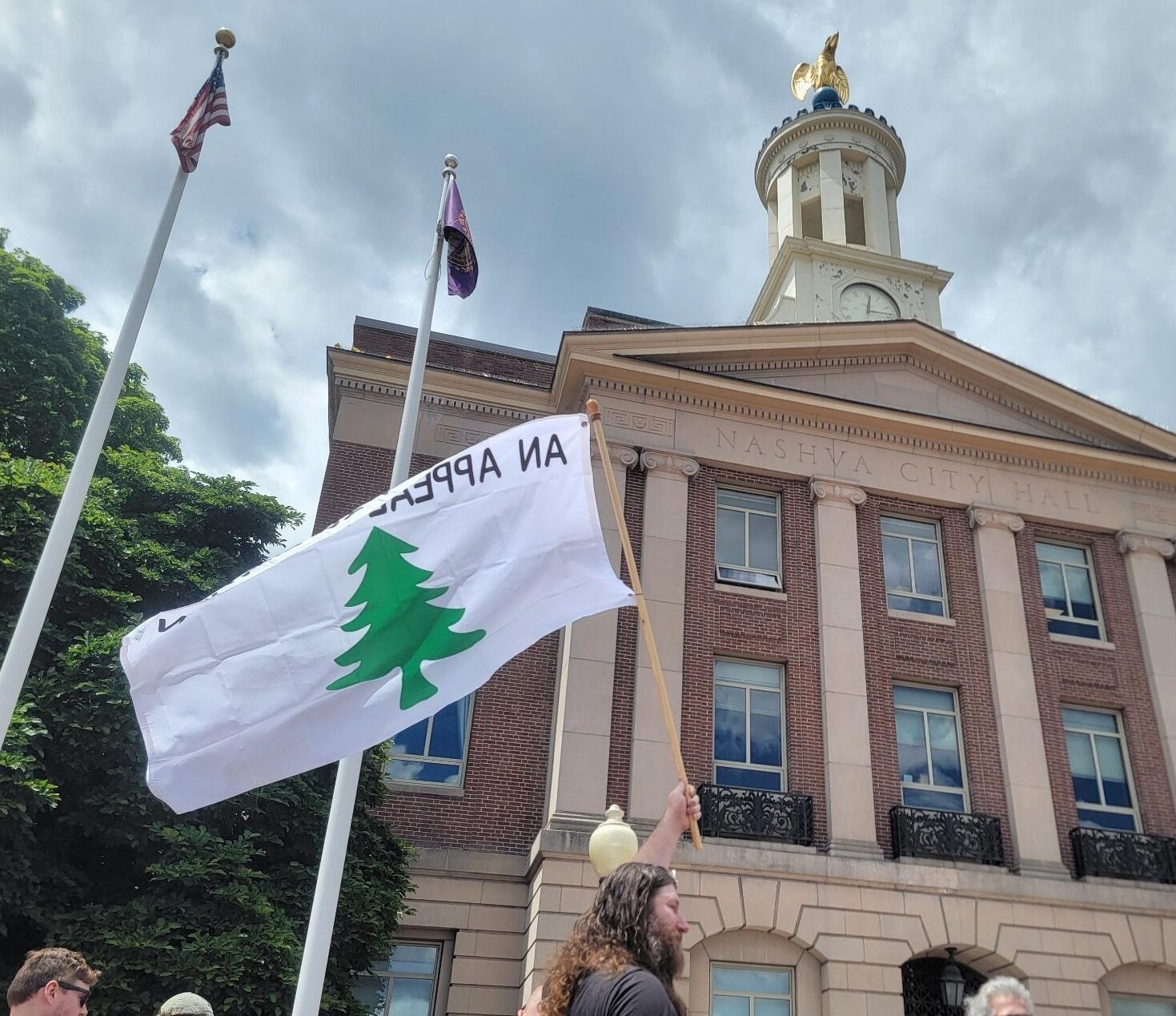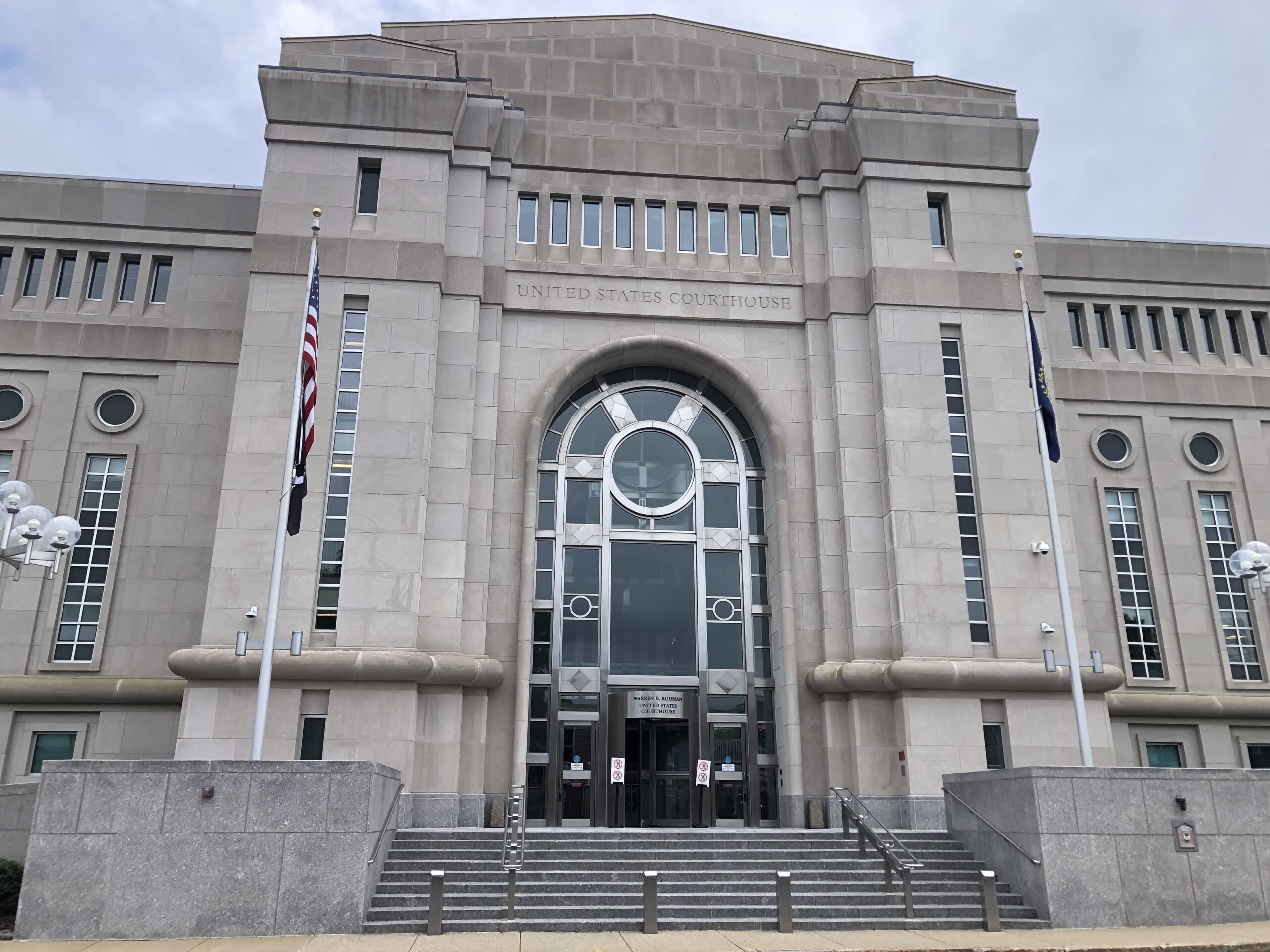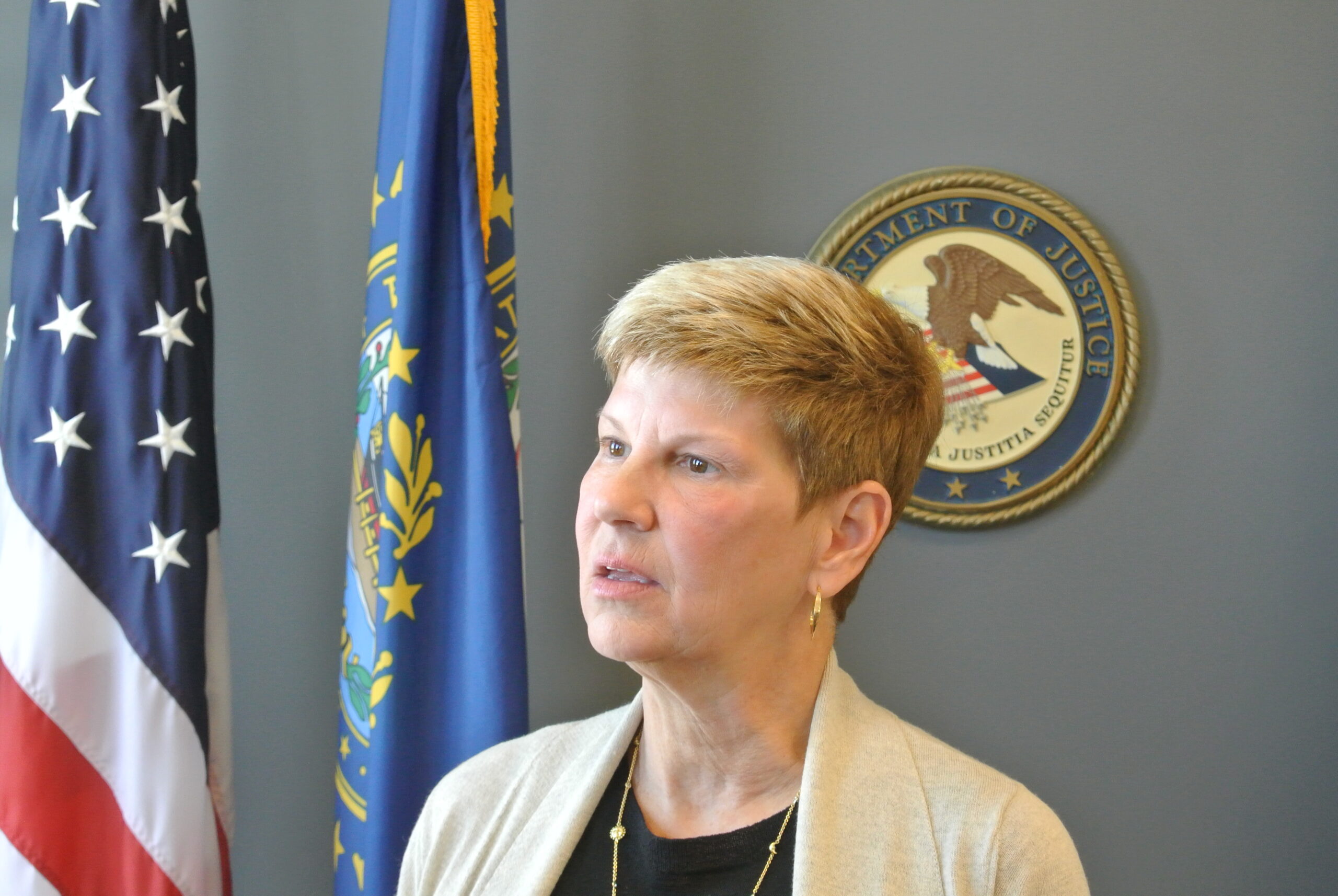Attorney for Bow’s Ban on Wristband Protests Compares Free Speech to ‘Poison’

The attorney for the Bow, N.H., school district compared free speech to “poison” in his argument before a federal court Wednesday.
Jonathan Shirley, attorney for SAU 67, is defending the district’s decision to ban parents from wearing pink wristbands marked with “XX” in a silent protest of biological males in girls sports.
The district’s actions were upheld by United States District Court Judge Stephen McAuliffe in a controversial ruling that appeared to defend the government’s right to discriminate against speech based on viewpoint. In his ruling, McAuliffe labeled wearing the pink XX wristbands as a form of “assault” on people who identify as transgender.
Parents Anthony Foote, Kyle Fellers, Nicole Foote, and Eldon Rash are appealing the decision, which was heard by a three-judge panel at the federal courthouse in Boston.
The Bow High School principal and the school’s athletic director ordered the protesting parents removed. They were later issued no-trespass orders, barring them from school property.
The parents want to be able to engage in silent protests at high school games. But Shirley told the court the potential danger presented by middle-aged parents wearing wristbands is too great.
“You know, poison is often determined by the dose,” Shirley said of their right to protest. “We’re talking about future events where we don’t have an understanding of how many people are going to be showing up with these wristbands.”
Del Kolde, the lawyer with the Institute for Free Speech representing the parents, promptly replied: “Your Honors, free speech is not poison.”
The judges were clearly puzzled by — if not outright hostile to — the district’s claims that speech that offended others or hurt their feelings should not be protected by the First Amendment.
The school district has openly engaged in viewpoint discrimination, acknowledging that pro-LGBT messaging would be allowed, but not the pink wristbands. It argues that its policy is legal due to its fear that the protest would get out of control and lead to players feeling bad about themselves.
“The school district should have the ability to step in and say, ‘Listen, we think we know where this is going. We need to stop you now,” Shirley told the justices.
While schools have a legal obligation to protect students from harassment, they cannot be given the authority to stop protests in case they might become disruptive and lead to harassment, Kolde argued. That would allow government entities to shut down any speech they dislike.
“It essentially becomes a get out of jail free card for viewpoint discrimination,” Kodel said. “People are just going to complain and say, ‘I feel harassed by that message’ when they disagree with the message, when they don’t want it to be heard. And that will lead to much more censorship in the First District.”
The wristband protest took place a week after a federal court judge ruled in favor of transgender Plymouth High School student Parker Tirrell. Tirrell challenged the 2024 New Hampshire law banning biological boys from playing on girls’ sports teams and, on Sept. 10, 2024, won the right to play soccer on the Plymouth girls’ team. The Foote’s, Rash, and Fellers were protesting at the Bow game against Plymouth as Tirrell was on the field.
Case records show that SAU 67 Superintendent Marcy Kelley and other officials were not concerned about a disruptive protest; they simply did not want any protest of any kind against transgender athletes, Kolde said. Kelley testified last year that she believes the XX wristbands convey an “exclusionary” message against transgender athletes competing with girls, something she could not allow. At the same time, Kelly said pro-LGBTQ symbols like rainbow flags are fine since she deems them to be “inclusionary.” But Kelley isn’t allowed to pick and choose what people say in public, Kodel told the justices.
Justices Sandra Lynch, Julie Rikelman, and Jefferey Howard seemed to accept Kolde’s argument that SAU 67 overstepped the constitution when officials directed the parents to take off the armbands. They also questioned if the district’s fear that the protests would get out of hand is enough legal justification to curb free speech rights.
Lynch pointed out that school officials actually caused a disruption when they confronted the parents at the game, but Shirley tried to blame the parents.
“The disruption was their refusal to follow the directive (to remove the armbands),” Shirley said.
“If the directive was unconstitutional viewpoint discrimination, then you have a problem,” Lynch responded.
The parents should be allowed to engage in silent, non-disruptive protests, Kodle said, even if school officials do not like the message.
“We don’t all have to agree on transgender issues, but if we’re going to get along in a pluralistic society, people have to be allowed to quietly express their views on terms equal to other parents. We all know that if they had worn pride flags and wristbands, we wouldn’t be here today,” Kolde said.











